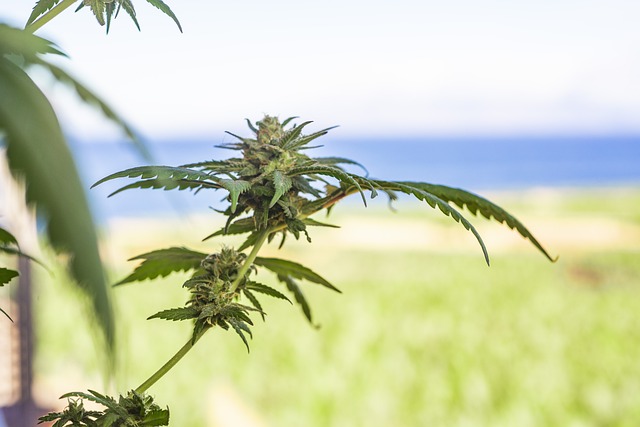
Discover the transformative properties of THCA flower, a natural compound gaining attention for its robust anti-inflammatory effects. In this article, we delve into the therapeutic benefits of THCA, exploring how it can be harnessed through cultivation and use to enhance overall health. Unravel the science behind these effects and learn the best practices for incorporating THCA flower into your wellness routine. Join us as we shed light on this emerging botanical marvel.
- Unveiling the Anti-Inflammatory Potential of THCA Flower: A Closer Look at Its Benefits
- Cultivating and Utilizing THCA Flower for Optimal Anti-Inflammatory Effects
Unveiling the Anti-Inflammatory Potential of THCA Flower: A Closer Look at Its Benefits

THCA flower, rich in tetrahydrocannabinolic acid (THCA), has garnered attention for its promising anti-inflammatory effects. Unlike its psychoactive counterpart THC, THCA is non-psychoactive, making it a viable option for those seeking therapeutic benefits without the mind-altering side effects. Studies have indicated that THCA possesses potent anti-inflammatory properties, which could be beneficial in managing various inflammatory conditions. The unique molecular structure of THCA is believed to interact with the body’s endocannabinoid system, influencing its ability to regulate pain and inflammation responses. This interaction has been observed to play a role in reducing inflammation associated with arthritis and other autoimmune disorders. Moreover, the anti-inflammatory effects of THCA are not limited to chronic conditions; they also extend to acute inflammatory responses, suggesting a broad spectrum of potential therapeutic applications. Consumption of THCA flower is often achieved through smoking or vaporization, although research into its efficacy in various forms, including topical applications, continues to evolve. The anti-inflammatory potential of THCA flower underscores its importance as a subject of further scientific investigation and a potential natural remedy for inflammation-related health concerns.
Cultivating and Utilizing THCA Flower for Optimal Anti-Inflammatory Effects



